
hunkorean
KR
ko
Followers
362.4kAverage Views
1.5kEngagement Rate
8.6%Performance
Related Profiles

Easy way to remember Korean word!
12.1k
5.61%
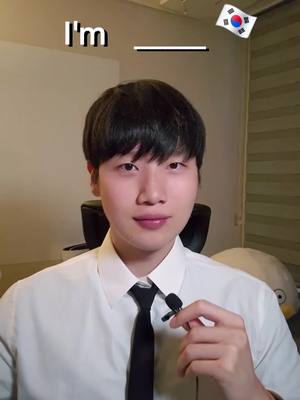
1. Key Components ① '저는' 저: A first-person pronoun, meaning "I." It is a polite or humble way of referring to oneself. Example: "저" + topic particle "는" = 저는 ("As for me..."). 는: 'A topic marker' that emphasizes the subject or introduces the topic of the sentence. Role: It implies "I am talking about myself here." --- ② '~~이에요/예요' 이에요/예요: The polite present tense form of the verb '이다' ("to be"). It is used to indicate identity, state, or characteristics. Form Changes: 1. 이에요: Used after nouns ending with a consonant. Example: 학생 ("student") + 이에요 → "저는 학생이에요."('학생' ends with the noun 'ㅇ') 2. 예요: Used after nouns ending with a vowel. Example: 의사 ("doctor") + 예요 → "저는 의사예요."('의사' ends with the vowel 'ㅏ') ---------- 2. Simplifications in Casual Speech In everyday conversation, '저는' is often dropped for brevity when the context makes the subject clear. Example: Full sentence: "저는 학생이에요." Simplified: "학생이에요." (Still means "I am a student.")
9.9k
5.53%

casual Korean expressions (0/3)
418.0k
11.74%
![A post by @hun.korean on TikTok caption: Think about the meaning of '비[bi]' in Korean!!](https://kyra-images.kyra.com/thumbnail/7437840224836783378.jpg)
Think about the meaning of '비[bi]' in Korean!!
31.2k
6%

"~면" in Korean means "if." It's used to express conditions, just like in English. For example: "비가 오면 우산을 가져가요." = "If it rains, I bring an umbrella." "시간이 있으면 영화 보러 가요." = "If you have time, let's go to a movie." It connects actions or situations based on conditions.
22.4k
7.89%

Korean Test (0/3)
45.2k
8.66%
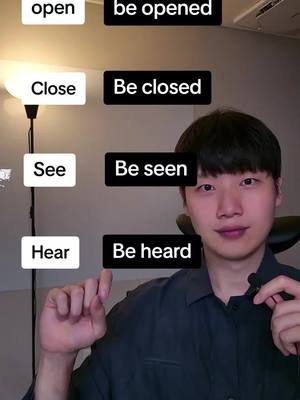
Active and passive voice in Korean
19.2k
6.4%

7.1k
8.2%
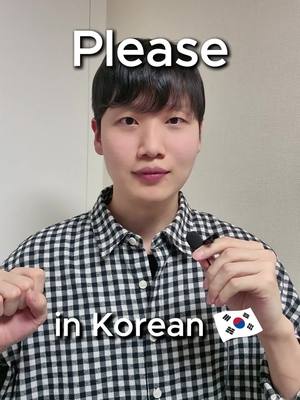
5.5k
8.11%

Long time no see, everyone! I really missed you all 😢. I couldn’t upload videos because I caught the flu and had a lot of busy things piling up... But I’ll start uploading again now! It’s a bit late, but Happy New Year to everyone! (Did you all enjoy watching Squid Game 2?)
10.1k
7.96%

The two meaning of 바람
15.8k
6.9%
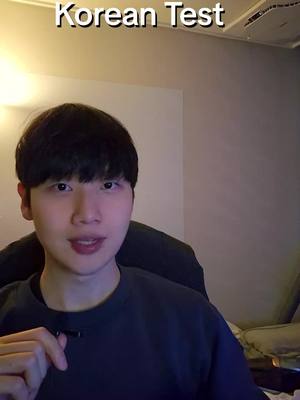
(0/2)
138.2k
9.53%
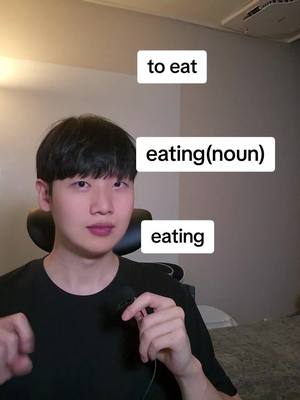
20.8k
6.39%
![A post by @hun.korean on TikTok caption: answers 1. 진짜야? [Jinjja-ya?] *Meaning: "Is it true?" / "Really?" *When to use: When you are surprised, shocked, or trying to confirm if something is true. *Breakdown: "진짜 (Jinjja)" means "real" or "true." "야 (ya)" is an informal ending used to ask a question in casual speech. *Example: A: "I saw a famous celebrity yesterday!" B: "진짜야?" (Really?) Tip: Use a surprised or curious tone to make it sound natural. 2. 뭐라고? [Mwora-go?] *Meaning: "What did you say?" / "What?" *When to use: When you didn’t hear something properly or are shocked by what someone said. *Breakdown: "뭐 (Mwo)" means "what." "라고 (rago)" is a quoting particle, meaning "did you say" or "are you saying." *Example: A: "You’re going to quit your job." B: "뭐라고?" (What did you just say?) Tip: Match your tone with the situation—use confusion, disbelief, or even frustration for the best effect. 3. 몰라! [Molla!] *Meaning: "I don’t know!" / "I have no idea!" *When to use: When you genuinely don’t know the answer or want to avoid giving an answer. *Breakdown: "모르다 (Moreuda)" is the verb "to not know." "몰라 (Molla)" is its informal conjugation, used in casual or emotional speech. *Example: A: "Where did you leave my book?" B: "몰라!" (I don’t know!) Tip: This phrase can sound playful, dismissive, or annoyed depending on your tone. It’s often used in casual and close relationships.](https://kyra-images.kyra.com/thumbnail/7443062281916665106.jpg)
answers 1. 진짜야? [Jinjja-ya?] *Meaning: "Is it true?" / "Really?" *When to use: When you are surprised, shocked, or trying to confirm if something is true. *Breakdown: "진짜 (Jinjja)" means "real" or "true." "야 (ya)" is an informal ending used to ask a question in casual speech. *Example: A: "I saw a famous celebrity yesterday!" B: "진짜야?" (Really?) Tip: Use a surprised or curious tone to make it sound natural. 2. 뭐라고? [Mwora-go?] *Meaning: "What did you say?" / "What?" *When to use: When you didn’t hear something properly or are shocked by what someone said. *Breakdown: "뭐 (Mwo)" means "what." "라고 (rago)" is a quoting particle, meaning "did you say" or "are you saying." *Example: A: "You’re going to quit your job." B: "뭐라고?" (What did you just say?) Tip: Match your tone with the situation—use confusion, disbelief, or even frustration for the best effect. 3. 몰라! [Molla!] *Meaning: "I don’t know!" / "I have no idea!" *When to use: When you genuinely don’t know the answer or want to avoid giving an answer. *Breakdown: "모르다 (Moreuda)" is the verb "to not know." "몰라 (Molla)" is its informal conjugation, used in casual or emotional speech. *Example: A: "Where did you leave my book?" B: "몰라!" (I don’t know!) Tip: This phrase can sound playful, dismissive, or annoyed depending on your tone. It’s often used in casual and close relationships.
473.8k
12.71%
Technology
Fastest Growing





